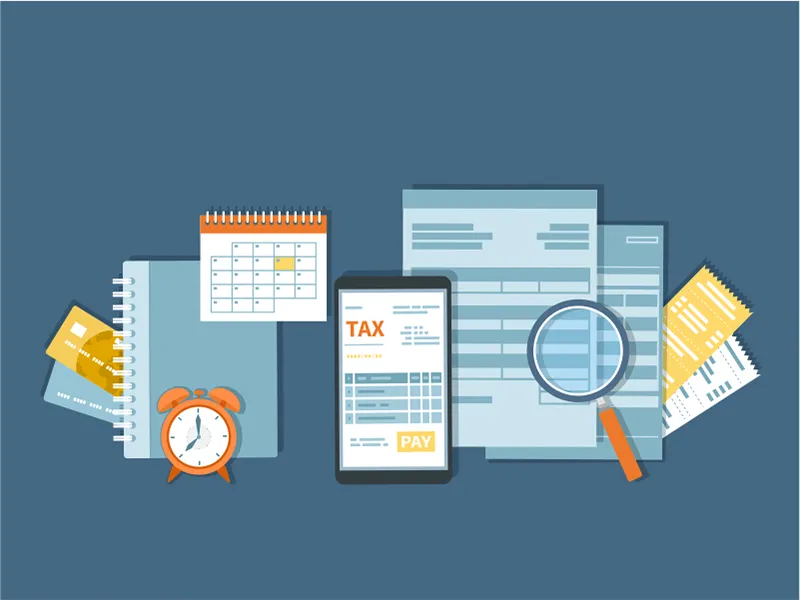
A person must file Income Tax Returns (ITR) if he/she has a gross total income above the tax exempted limit. Filing income tax returns is mandatory in India for individuals with taxable income above Rs. 2,50,000. Even if one’s income is tax exempted, filing income tax returns can have many benefits. While most of us know the key benefits, such as documentation purposes, avoiding penalty, etc, not many are aware of the below-mentioned benefits of filing tax returns.
Here are five lesser-known benefits of filing tax returns:
Smooth VISA application process
If you are planning to opt for a job or carry out business outside India, the immigration authorities may seek copies of your income tax returns filed in the previous few years. Disciplined income tax return filing will ensure that the VISA application process is smooth. This is because immigration authorities will consider the applying individual as being tax-compliant. Many embassies like the US, US, Canada, etc. consider income tax return records as one of the most important information about an individual.
Claiming losses
It is important for an individual taxpayer to file income tax returns within the due date in order to claim certain specified losses. Losses can be from:
- capital investments,
- business,
- profession, etc.
By filing income tax returns, an individual can claim adjustments for losses carried forward to future years. ITR also acts as a document for tracking losses to be claimed in the future. For instance, an individual taxpayer who earns profits from a mutual fund sale or sale of equity shares can adjust these profits against losses incurred in the previous years by filing timely income tax returns.
Did you know?
Following must mandatorily file ITR irrespective of their income:
- Individuals who pay more than Rs. 1 lakh for consumption of electricity
- Individuals who have undertaken a foreign trip costing more than Rs. 2 lakhs
- Those who deposit more than Rs. 1 crore in a current account
- Those who have income, assets or signing authority in foreign nations
It makes loan processing easier
If you want to apply for a home loan or any other loan, the lender will most likely seek income proof before granting the loan. The process generally involves submission of income tax returns for the previous two or three financial years. In absence of ITR, the loan application may be rejected.
Contribution towards nation-building
We all want our nation to progress from being a developing country to a developed one. Any amount paid by us as tax helps in overall stretching and building of the nation. Income tax is one of the major sources of income for the government. The amount paid in tax by residents can be used by the government to build infrastructure or carry out other developmental activities in the country.
It allows you to claim TDS refunds
Those whose employers or contractors deduct tax at source can claim a deduction for the same by filing income tax returns as per the deadline. In TDS cases, the income tax department will calculate total tax liability of an individual after adjusting the TDS already paid. Those who are not required to pay tax can claim a refund of TDS by filing ITR. It is also easier to check refund status through income tax return status.
Acts as a proof of income
The salaried get their pay slips which are their proof of income but self-employed don’t have that provision so they can file tax returns and use that as a proof of income when required.
Who should file income tax returns mandatorily – Budget 2023?
As per the Income Tax Act, any assessee with a gross total income (GTI) above the exempted tax slab for his/her age must mandatorily file ITR.
The basic limit for tax exemption is:
- Rs. 2.5 lakh for assessees below 60 years of age,
- Rs. 3 lakhs for assessees whose age is between 60 and 80 years,
- Rs. 5 lakhs for assessess who’s age is above 80 years
An individual must file income tax returns if his/her gross total income is more than the basic exemption limit before claiming a deduction on capital gains under these sections: 54, 54B, 54D, 54EC, 54F, 54G, 54GA, or 54GB.
Conclusion
As we can see, income tax returns can benefit taxpayers in more ways than one. It is not just helpful in smooth financial transactions as it can also help in other walks of life, such as improving job prospects. Filing ITR is therefore important and more important is filing them on time. The last date to file Income Tax Return (ITR) for FY 2022-23 (AY 2023-24) without a late fee is 31st July 2023.
FAQs
Yes, most banks and lenders seek ITR proof while applying for credit cards. If you have not filed your ITR, there are chances of the application being rejected.
Unlike salaried individuals, self-employed taxpayers do not have any proof of income. The income tax return acts as a proof of income for self-employed taxpayers as it gives a break-down of their income and expenses in a financial year.
After filing an income tax return, the excess amount is transferred to your bank account or through a cheque after the refund has been processed.
You can file revised income tax returns multiple times till the expiry of time limit.
ITR is a prescribed form using which a taxpayer can furnish details to the Income tax department regarding his /her income from different sources and taxes paid for the applicable financial year.




















